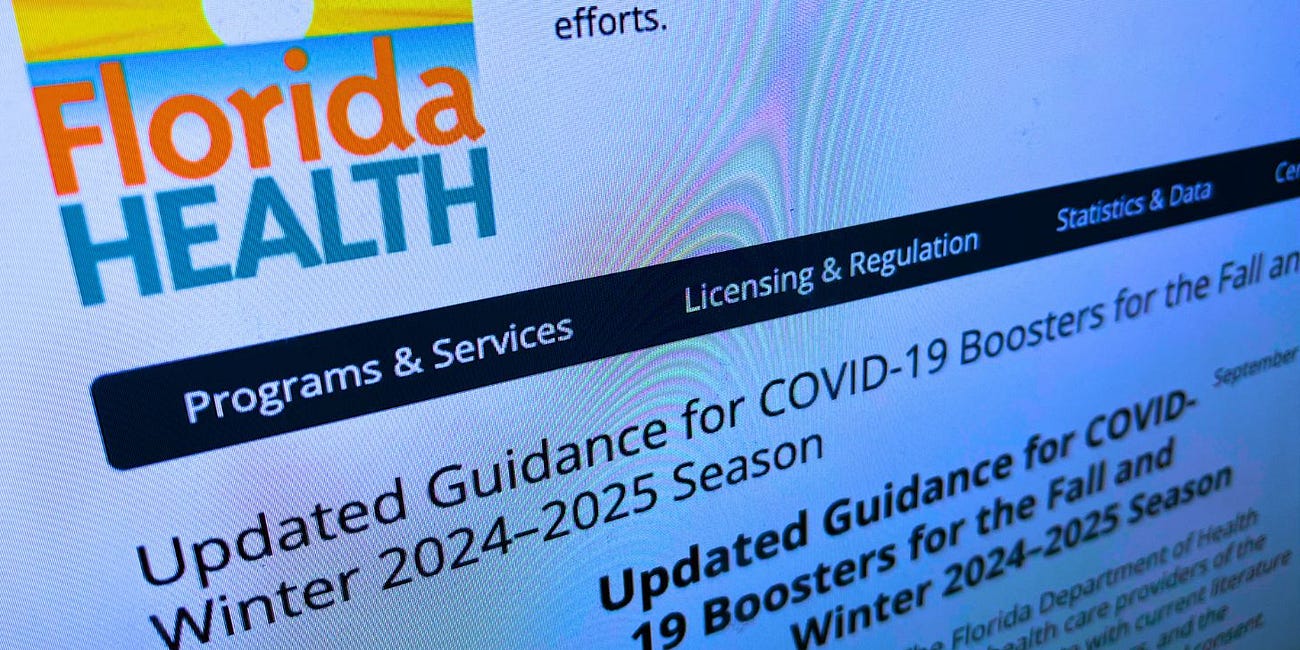Flu Vaccination Increases Risk of Medium- and Long-Term COVID-19 Symptoms: 'Journal of Clinical Medicine'
66.67% of flu-vaccinated have long-term COVID symptoms, compared to only 38.71% of the unvaccinated.
A study published earlier this month in the peer-reviewed Journal of Clinical Medicine confirms influenza (flu) vaccination increases the risk of medium-term and long-term COVID-19 symptoms.
Follow Jon Fleetwood: Instagram @realjonfleetwood / Twitter @JonMFleetwood / Facebook @realjonfleetwood
The findings come as the World Health Organization (WHO) updates its influenza care guidelines, claiming the virus represents “a pandemic threat for the future.”
Last month, new cases of Avian influenza were reported at three Central Valley dairies in California.
The U.S. Department of Agriculture identified eight livestock herds in the state with confirmed cases of highly pathogenic avian influenza, MedXPress reports.
The virus has reportedly hit 14 states and infected 200 dairy herds.
The new study aimed to identify the medical complications following COVID infection in the Indigenous Zapotec population of the Isthmus of Tehuantepec region in Oaxaca, Mexico.
The cross-sectional analytical study included 90 Indigenous Zapotec participants (30 males and 60 females) from the Tehuantepec region who had a SARS-CoV-2 infection.
The study authors emphasized that influenza vaccination prior to COVID was “significantly associated with the duration of symptoms.”
Among those who received an flu vaccine before becoming infected with COVID, 16.67% had short-term symptoms, 16.67% had medium-term symptoms, and 66.67% had long-term symptoms.
That’s compared to those who did not receive a flu vaccine before becoming infected with COVID: 54.84% had short-term symptoms, but only 6.45% had medium-term symptoms and 38.71% had long-term symptoms.

Follow Jon Fleetwood: Instagram @realjonfleetwood / Twitter @JonMFleetwood / Facebook @realjonfleetwood
Colostrum 3 Times More Effective Than Flu Vaccination: Journal 'Clinical and Applied Thrombosis/Hemostasis'
A resurfaced study from 2007 reveals that colostrum, a substance produced by mammals shortly after giving birth, is significantly more effective than traditional flu vaccination in preventing influenza.
COVID and Flu Vaccines Do Not Reduce Severe Illness, Hospitalization, or Death: Study Preprint
A new study published Tuesday in Preprints confirms that neither the COVID-19 nor flu vaccines significantly reduce severe illness, hospitalization, or mortality rates, contradicting the mainstream narrative claiming the opposite.
'Patients Develop Severe and Critical COVID-19 Infection Despite Being Vaccinated': Journal 'Bioinformation'
A March study published in the peer-reviewed journal Bioinformation confirms that COVID-19 infections not only occur in those who receive vaccinations but that the vaccinated are infected significantly more often than the unvaccinated.
8 Studies Support Ivermectin's Effectiveness Against Influenza Amid Bird Flu Pandemic Worries
As the H5N1 influenza A virus (IAV) infects birds and mammals, including humans, across the world, health experts are warning a bird flu pandemic could be “100 times worse” than COVID-19.
7 Studies Confirm Antiviral 'Xofluza' Is 'Drug of Choice' for Bird Flu, as USDA Tests Ground Beef for Virus
The U.S. Department of Agriculture (USDA) will begin testing ground beef for H5N1 bird flu (influenza) particles, as the virus has reportedly been found in nearly three dozen dairy herds across nine states.
Children Who Receive COVID-19 Jab Nearly Twice as Likely to Develop Asthma: Journal 'Infection'
A new study published Friday in the peer-reviewed scientific journal Infection confirms that children who receive COVID-19 shots are significantly more likely to develop asthma than children not receiving the jabs.
Bird Flu: CPT Code Update Readies U.S. Health Systems for New mRNA Jab Rollout Skipping FDA Approval Process
In anticipation of a coming avian influenza (bird flu) pandemic, the American Medical Association (AMA) on Friday announced an editorial update to the ‘Current Procedural Terminology’ (CPT) code set in order to account for the development and administration of bird flu “vaccines.”
Higher COVID-19 Infection Rates Among Vaccinated Aged 65+: Journal 'Spatial and Spatio-Temporal Epidemiology'
A new study published this month in the peer-reviewed medical journal Spatial and Spatio-Temporal Epidemiology has raised significant concerns about the relationship between COVID-19 jab rates and infection risk among older populations.
Pfizer COVID Jab Has 'No Significant Effect' Against Infection or Transmission: Journal 'BMC Medicine'
A Wednesday publication in the peer-reviewed medical journal BMC Medicine confirms mRNA COVID-19 injections have “no significant effect” against infection or transmission.
Natural Infection Provides More Diverse Antibody Protection Than COVID-19 Injections: Harvard, Boston Children's, Massachusetts General, Brigham and Women's Hospitals
A study published online last month ahead of print in BioRxiv confirms natural SARS-CoV-2 infection supplies the body with more antibodies than COVID-19 mRNA jabs in children under 5 years of age.
Natural Infection Provides Superior Immune Protection Compared to COVID Jab: Journal 'Frontiers in Cellular and Infection Microbiology'
A study published last month in Frontiers in Cellular and Infection Microbiology confirms that natural SARS-CoV-2 infection confers a more potent mucosal immunity following infection compared to vaccination with the Pfizer/BioNTech mRNA COVID-19 jab in children.
Hydroxychloroquine and Chloroquine Are Safe and Effective Against COVID-19: Double-Blind, Randomized, Placebo-Controlled Trial in Journal 'PLOS Medicine'
A study published Thursday in the peer-reviewed journal PLOS Medicine confirms antimalarial drugs hydroxychloroquine and chloroquine are safe and effective against COVID-19.
Florida Surgeon General Advises Against Using mRNA COVID-19 Jabs
Florida Surgeon General Dr. Joseph A. Ladapo has advised against the use of mRNA COVID-19 shots in his state, according to a Thursday press release from the Florida Department of Health.



















